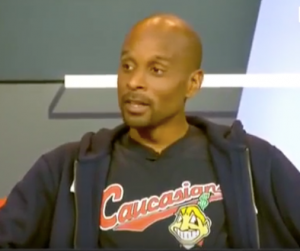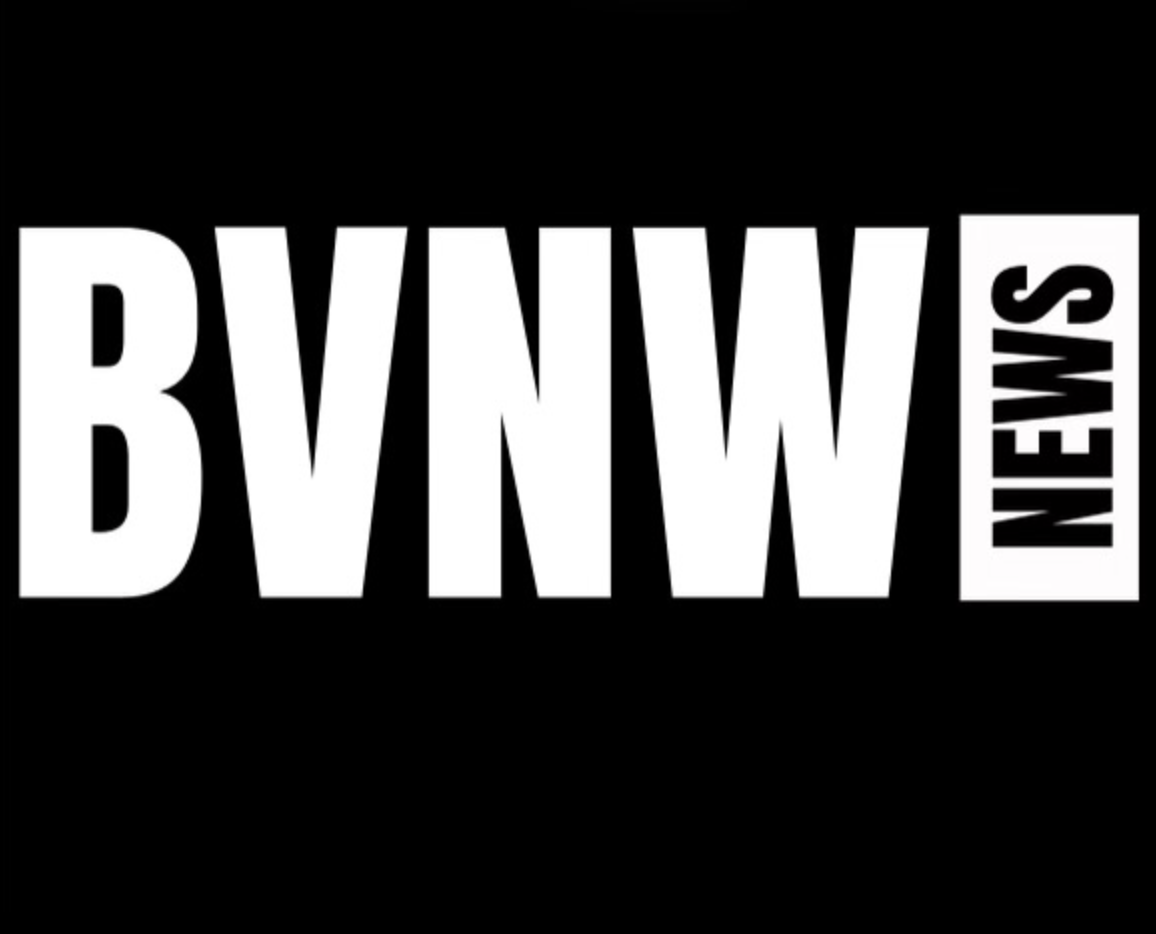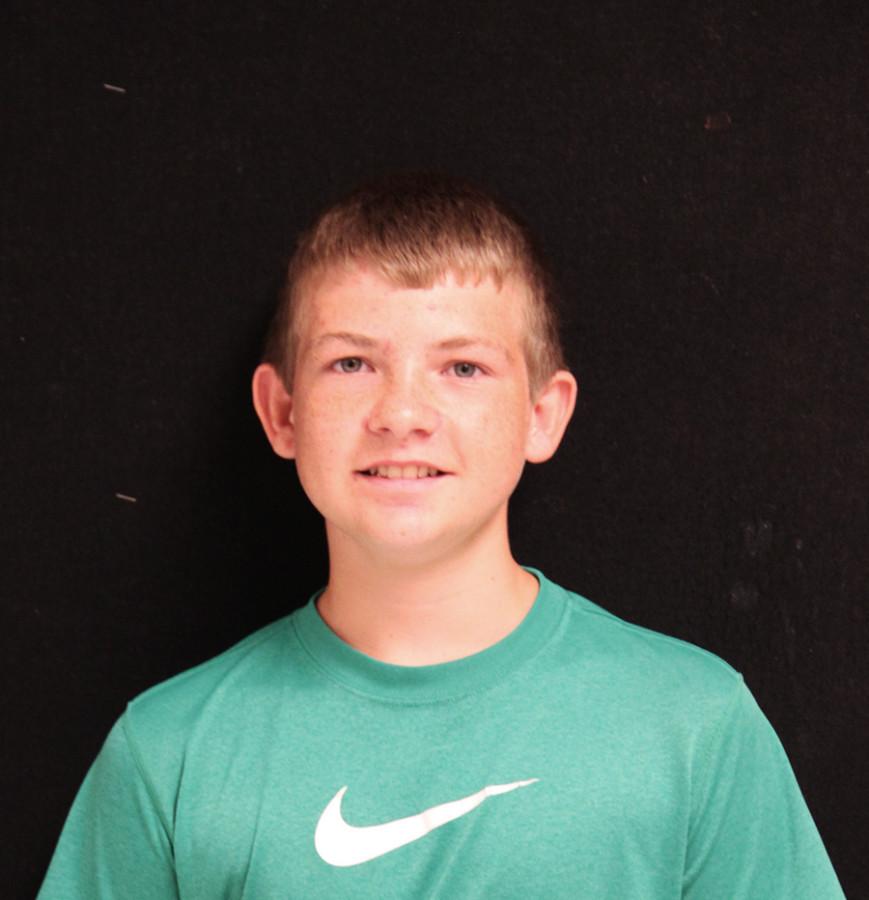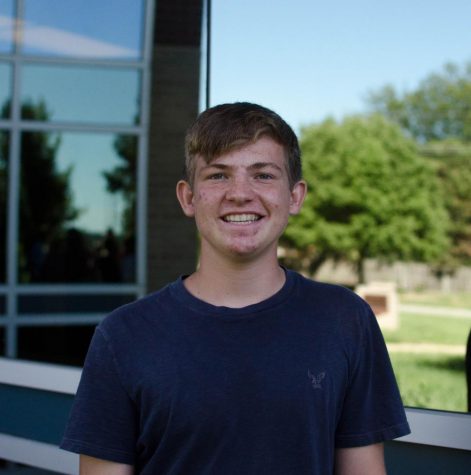Racism in team names: a fine line
April 11, 2016
Early Thursday morning, a quick check of the top trends on Twitter would have brought up the name Bomani Jones, an analyst at ESPN not afraid to speak out on racial injustice. That morning on ESPN’s Mike and Mike show, Jones wore an interesting and thought-provoking shirt that displayed a white-faced “Chief Wahoo” logo and had the word “Caucasians” written across the chest where “Indians” would be placed on the normal jersey.

Jones commented on people who might have a problem with his shirt, saying it is hypocritical for someone to have a problem with his shirt but not with the one that says “Indians.”
“To have a problem with the logo of this (pointing toward his shirt) would be to have a problem with the Indians,” Jones said on the show. “But if you’re quiet about the Indians but have something to say about my shirt, I think it’s time for introspection.”
The fact that we still accept and ignore the reality that a caricature representing an entire group of people who have been oppressed ever since the colonization of America and (arguably) are still being oppressed to this day is sickening and disgusting. Somehow, someway we’ve justified placing a caricature alongside a team name representing a group of people like Indians, and using a racial slur, Redskins, which is the Native American equivalent of N—ers.
It should never be acceptable to have a team’s mascot label an entire group of people based on skin color, appearance or stereotypes. While Washington Redskins team owner Dan Snyder continues to justify the use of a slur as his team’s name despite President Barack Obama, congressmen, and many others suggesting that he change it, the Cleveland Indians quietly hide behind their money-making “Chief Wahoo” logo.
Whether you choose to recognize it or not, Native American groups do not have a voice in this country, allowing this labeling and use of a caricature to persist. Until a boycott or any other significant action is taken to damage the heavy wallet Dan Snyder has, nothing is going to change.
The Monday Morning Quarterback interviewed multiple Native Americans in 2013 and found that many of them were torn between what they deemed as acceptable and what was not acceptable in their views. Neely Tsoodle of the Muscogee (Creek) Nation in Oklahoma said taking Native American team names out of sports could erase a part of Native Americans identities, which makes it important to distinguish what is and isn’t acceptable.
“I don’t see the need to eliminate Native Americans as mascots,” Tsoodle said in the interview. “In fact, I don’t want to do that. At all. If we do, then we are erasing another part of our footprint in American culture… We just need to make sure that the nickname is used in a tasteful manner and we are educating people about the meaning behind it.”
The Florida State University Seminoles and Central Michigan University Chippewas have both received approval from the tribes which they are representing, making their mascot choice credible. Despite that, some schools like St. John’s University and the University of Miami Ohio changed their names from Redmen and Redskins to Red Storm and Red Hawks respectively.
Schools like Shawnee Mission North, which use Indians as their mascot, but don’t have a “Chief Wahoo” type logo, are riding the fine line of what is offensive and what is not. I don’t believe the use of Indians as SMN’s mascot is bad, but when choosing mascots you must understand how it affects the people you are referencing rather than only thinking about how it affects you.
Hiding behind a caricature that spits on Native Americans and using a slur – like the Cleveland Indians and Washington Redskins do – as your team name to “honor and uphold tradition,” is cowardly and pitiful behavior. It’s sad that we have oppressed Native Americans and their history to the point that the only place in society we presently see them is through teams’ mascots. While we always must treat Native Americans and all people with respect, we must also be cautious and mindful of using them as mascots. Just because a team name might not offend you, doesn’t mean that it isn’t offensive to the group that is represented.



